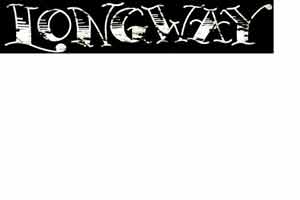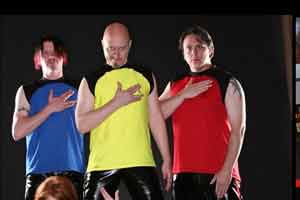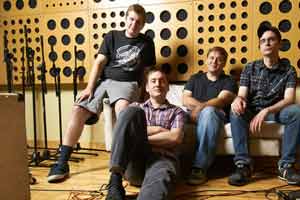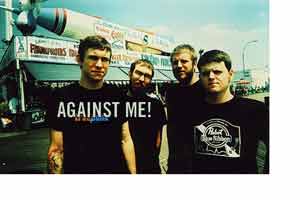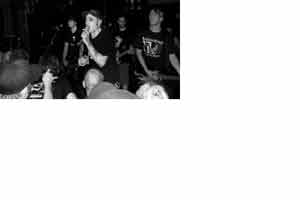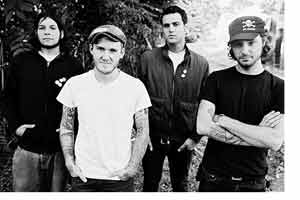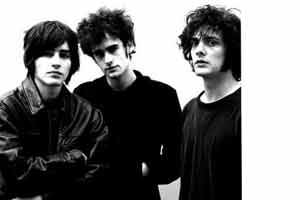- HOME
-
BANDS
Browse bands
List bands by music genre
-
ALBUMS
Browse Albums
- REVIEWS
- INTERVIEWS
-
NEWS
Browse bands
List bands by music genre
-
ARTICLES
Browse bands
List bands by music genre
- ARTISTS
- CONTACT
Chuck Ragan
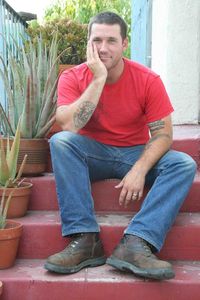
Band Pages
Album Reviews
Interviews with band
Overall Rating
Music Styles
Band Info
Founded:
1993
Ended:
Active
Location:
City: Gainesville
State: FL
Country: US
City: Gainesville
State: FL
Country: US
Members
Links
- No links currently

Chuck Ragan and his band of merry musicians swap punk rock for a pedal steel on their all-acoustic Revival tour, writes Steve Tauschke.
Conceived by former Hot Water Music leader Chuck Ragan and his wife, the Revival concept is all about bringing together like-minded musicians to create a community-based project - on the road.
Ragan and friends - respected English punk/folkie Frank Turner, Lucera's Ben Nichols and Tim Barry from US hardcore veterans Avail, plus assorted session players on pedal steel and mandolin - will be trading in the electric punk rage of their youth for a mellower and, dare we say it, mature acoustic shows in the US this month.
For Ragan, one of American punk's humble gentlemen, going unplugged is no great stretch given the acoustic genesis of much of Hot Water Music's material.
Chuck Ragan:"A majority of the early stuff was definitely written that way," nods the singer-songwriter. "Even throughout we always wrote that way and then we'd come together in our rehearsal space and plug in and go at it."
Since HWM's demise in 2006, Ragan's three studio albums, including last year's rustic Gold Country, have presented numerous creative challenges for him as a composer.
Chuck Ragan:"A lot of the music styles are a little different and the writing styles are different because with Hot Water we always wrote as a collective," he surmises.
Chuck Ragan:"Writing solo is a good thing because I'm not limited and I can just let the songs come out. That's the positive thing about writing individually but at the same time you don't have that support group there to police your ideas so to speak. But I love both ways really."
Ragan has also overcome physical obstacles in recent years. Fans may not be aware but in 2004 a broken wine glass severed tendons in his hand requiring months of physical rehab amid concerns his guitar strumming days were finished.
Chuck Ragan:"I do two things; I use tools and I play music so I need my hands," he says. "I was pretty bent up about it back then because there were a few months there where the doctor told me he wasn't sure if I was going to be able to use my hand again and that scared me.
Chuck Ragan:"All the little things like brushing your teeth or writing a letter or holding a cup of coffee, you don't think about them until you're not able to do them. And in physical therapy I saw a lot of things and a lot of people that made me really appreciate everything. It was nothing compared to what a lot of people were going through and that really opened my eyes to a lot of things.
Chuck Ragan:"So I'm not too worried about it. Half of my hand is still numb and I don't have the dexterity I used to have but I can still play a few chords. I was never that good of a guitar player anyway! Ha!"
Raised in a "fairly conservative southern Baptist household", Florida-bred Ragan grew up surrounded by old time gospel and bluegrass music and on his mother's side, Creole and Cajun sounds. His teen skateboarding days took him on a lengthy detour down the path of punk rock rebellion however he's never forgotten his roots.
Chuck Ragan:"The energy of all that music definitely stuck with me in a lot of ways," he says. "I think any artist whatever you grew up with and was instilled in you at an early age one way or the other kind of weeds its way through and comes through sooner or later.
Chuck Ragan:"Early on I just used it just to express anger and angst and I still do that now but I use that as a foundation. Music's always been a form of therapy for me. I feel like I was really blessed to have met some great people who believed that and showed me what music can be about, you know, helping ourselves get better and get through life. And I took that and ran with it and I'm glad it did.
Chuck Ragan:"Now I really cherish that I'm able to sit down and express myself through songs and get things off my chest and get through the day. I'm not sure how it's maturing but I think as long as a do it from the heart and grow older doing it'll mature one way or the other."
The Revival "family" of musicians promises an uninterrupted three hour show, with each artist performing their own tracks interspersed with collaborative sing-a-longs throughout the night.
Chuck Ragan:"You should definitely get there early because we all take the stage together and play a round of each other's songs and then after that we just see what happens," says Ragan.
Chuck Ragan:"People just kind of peel off and we all just come on and off the stage throughout the show collaborating on each other's songs. This show will be all-acoustic but it's gonna have quite a bit of energy my friend."
An evening short on ego and hierarchy, the Revival gigs are all inclusive.
Chuck Ragan:"You do the normal headline and support thing for 15 or more years and it gets rather monotonous," says Ragan. "So all we're trying to do is break down the barriers of who should be an opener and who should be a headline. It's not anything ground-breaking, it's a very old idea.
Chuck Ragan:"I mean this is how folk music began, with families playing music together and then it stretched over to their neighbours and into the communities. For me it is just how music was meant to be shared."
Articles
Radiohead Concert at Poznan
2013-01-17 by monika
In The Court Of The Crimson King
2013-01-11 by kwarc
About cover art of Heritage by Opeth
2013-01-09 by super8
Iron Maiden at concert
2013-01-02 by the_moor
Old musical box - about Nursery Cryme
2012-12-15 by kwarc
Last albums
Concerts
Mark Knopfler
2013-05-08 - Lodz, Atlas Arena 19:30 165-616 PLN
Roger Waters The Wall
2013-08-20, Warszawa, tickets: 242 zł - 1310 zł
Sonisphere Festival
2013-10-12 - Wroclaw 19:30, tickets: 165-1616 PLN
Iron Maiden
2013-08-20, Warszawa, tickets: 242 zł - 1310 zł

